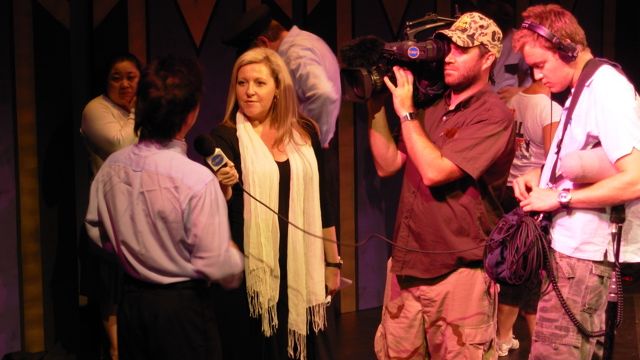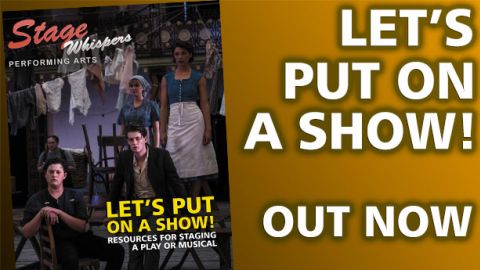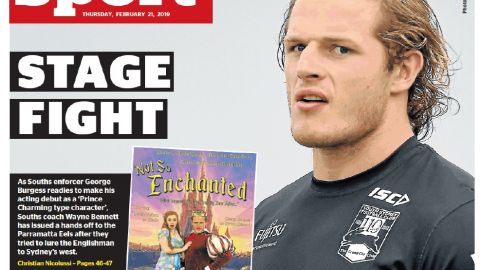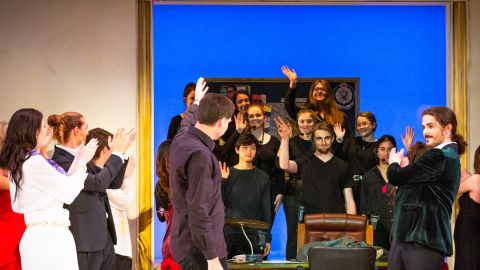To P* or Not to P*

(*Publicise)
By Geoff Sirmai
Heard the one about the producer who realised just the day before opening night that he’d forgotten to publicise his play? I have. Turns out he’d looked at the box office figures for the first time and was shocked to find there were hardly any sales. Then he remembered …
How do I know? Because I was the publicist who took his panicky call asking what could be done to save the situation!
There’s always something … but, like the lost traveler who asks for directions a long way from home, it was tempting to tell him: “Well, I wouldn’t start from here!”
Professional publicity is an essential part of the promotional ‘mix’ in gaining profile for your event … and getting those valuable ‘bums on seats’. It’s not something to be left to the ill-equipped and certainly not left to the last minute!
While marketing involves spending money on adverts, posters, flyers and banners, publicity is ‘free media’ … editorial that fills the press, the airwaves and the internet with feature stories or those crucial ‘what’s on’ listings.
A publicist plans and negotiates these articles, invites reviewers, and often promotes direct to their own special audience databases. The benefits are obvious – especially for companies whose budget will not stretch to expensive advertising.
Some can assist with photography, handle your opening night invitations, attract reviewers, casting agents, celebrities or local VIPs to help you make a ‘splash’. Published society column photographs of your opening night guests can also further boost your profile.
Where should you spend your limited promotional budget? Consider this: press coverage holds more sway than adverts – it carries the weight of editorial imprimatur, not just the supposed ‘self-promotion’ of advertising that can more easily be dismissed. ‘Third party’ promotion through a publicity company is also more tasteful than blowing your own trumpet … however tunefully!
Cast and crew also appreciate the attention which rewards them for their efforts and gains them wider professional recognition. It enhances your company’s reputation and reinforces your ‘brand’. All of which is not easily done without the skills and the contacts that a professional publicist offers. I recently managed to get prime time TV news coverage for a suburban musical society. It gave a huge boost to sales but also thrilled the cast enormously!
The converse is true too. A skilled publicist can turn bad news to your own advantage. One play I was promoting featured so much kissing that it had to be postponed when the lead actor developed coldsores! With his permission and a little discreet placement of stories in gossip columns, the lighter side of the situation won a lot of sympathetic and good-humoured coverage.
What about bad reviews? Well the truth is that they’re not fatal. Audiences often like to compare their own opinions with the critics – who, after all, represent only one opinion. And a good review can be helpful even for smaller companies with short seasons – remember, internet arts sites can publish a review within hours, ready for you to quote in immediate releases to other media and audience groups.
PR consultants have influence with the media because they have a regular on-going relationship with the key journalists. They can match the right angle with the right media outlet. They also know just what the press like to receive and how to catch their eye in a crowded and competitive arts landscape.
A specialist arts publicity company takes the hard work - and guess-work – of PR off your hands. That leaves you the time and space to get on with your main business … that's show business!
In the end, your audiences will judge your show’s success. But don’t leave a stone unturned to make certain you get as many of them there as you can! Whomever you choose to handle your publicity, don’t forget about it …
Remember, putting on a show without PR is like winking at someone cute in the dark: you know what you’re doing … but no one else does.
Break a leg!
Geoff Sirmai is principal of Watchdog Communications, a Sydney-based arts publicity consultancy. Visit www.watchdog.com.au or call (02) 9389 3907
THE PR TOP 10
Watchdog’s Top Tips for Community and Indy Theatre Promotion.
1. Start early – give yourself and the media time to place the stories
2. Vary your approach to suit the medium – one style doesn’t fit all. Match the ‘angle’ with the outlet – is it a local paper, radio, ethnic or arts specialist?
3. Make your release newsworthy – Try and ‘hang’ your release on a hot current issue or feature interest beyond the play’s obvious theme. Remember: what you think is interesting may not be so to every journalist. It’s a competition for space!
4. Great photos – quality promotional and production shots will double your coverage. Not cheesy posed shots, but dramatic, powerful or funny ‘moments’.
High resolution (300dpi) for the press + low res web versions (72dpi)
5. Don’t over-hype – passion and ingenuity + originality, yes… absurd hyperbole, no. No-one likes a rip-off.
6. Invite opening night guests and the press – make a buzz, make a splash.
7. Give away tickets judiciously – Don’t look desperate but do give away a few ‘comps’ (say on radio or through competitions) in exchange for coverage
8. Don’t be afraid to invite reviewers - but be ready on opening night if you do!
9. Cross-promote – do complementary offers to another company’s audience in exchange for access to theirs. Negotiate mutual leaflet drops.
Remember: a theatregoer at any other show (but especially at the same venue) is your best target audience.
10. Measure your success – do you poll your audiences? It’s worth slipping a short survey in the program to see how they found out about the show. Offer an inducement to maximise returns – a prize, a discount voucher etc.



